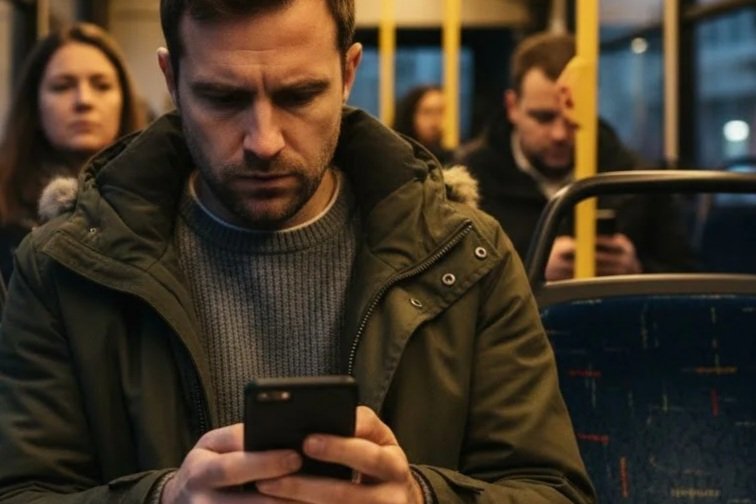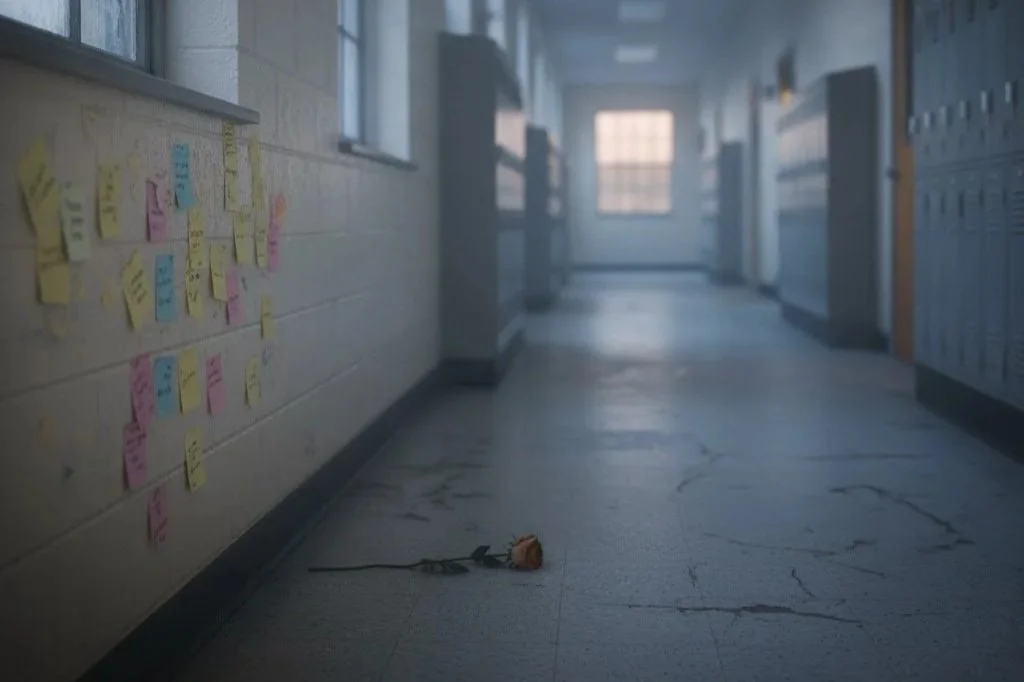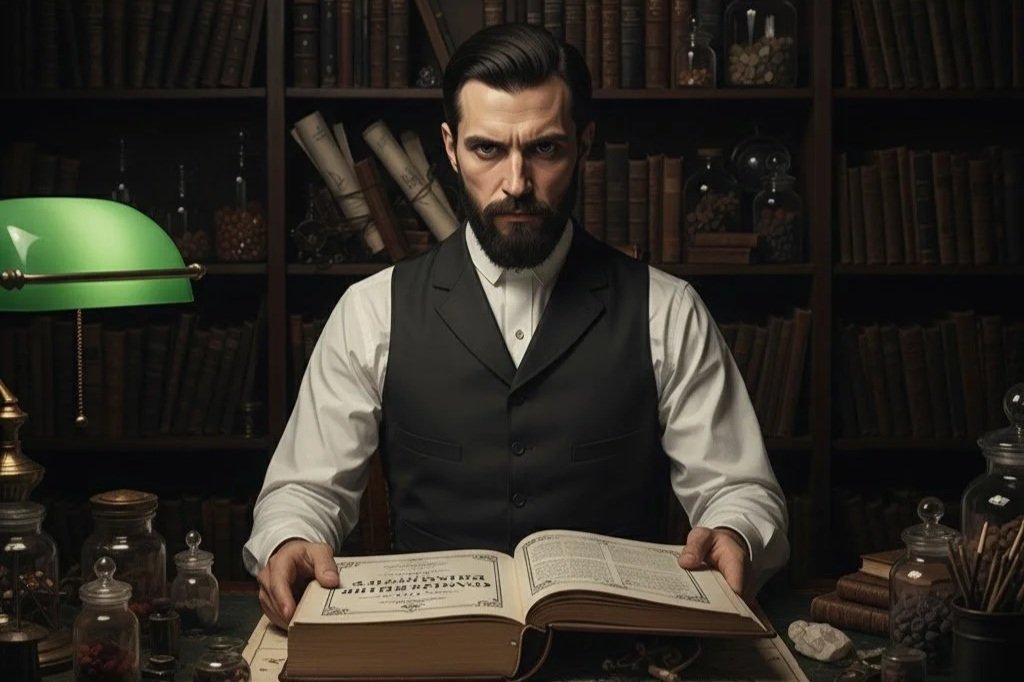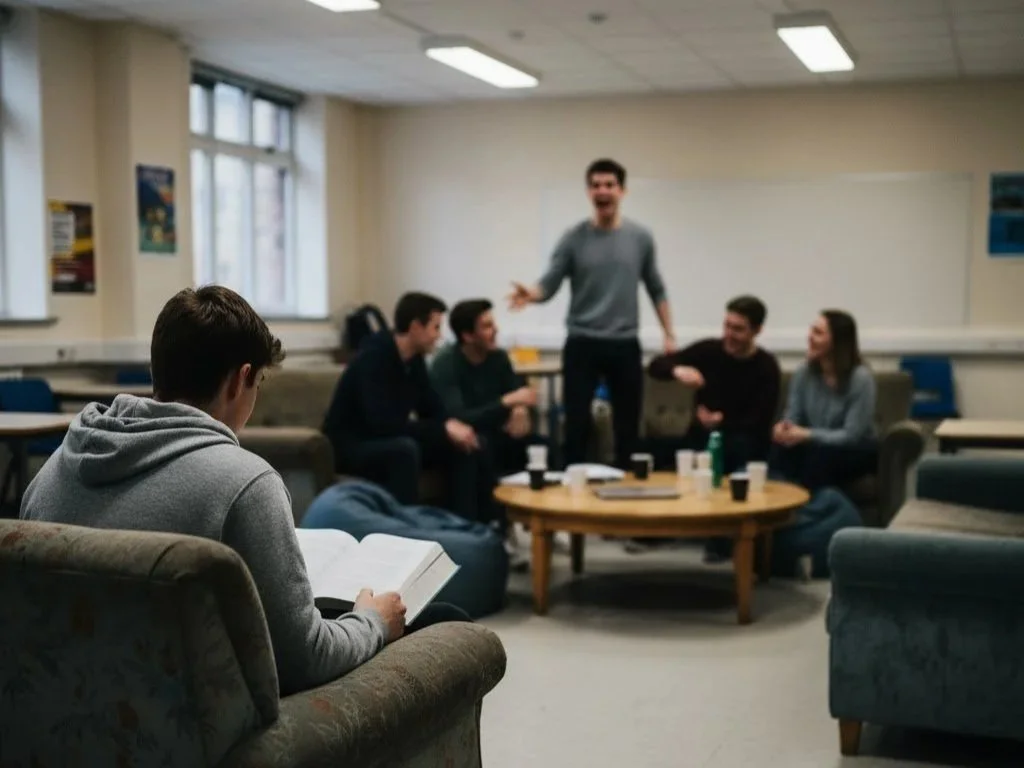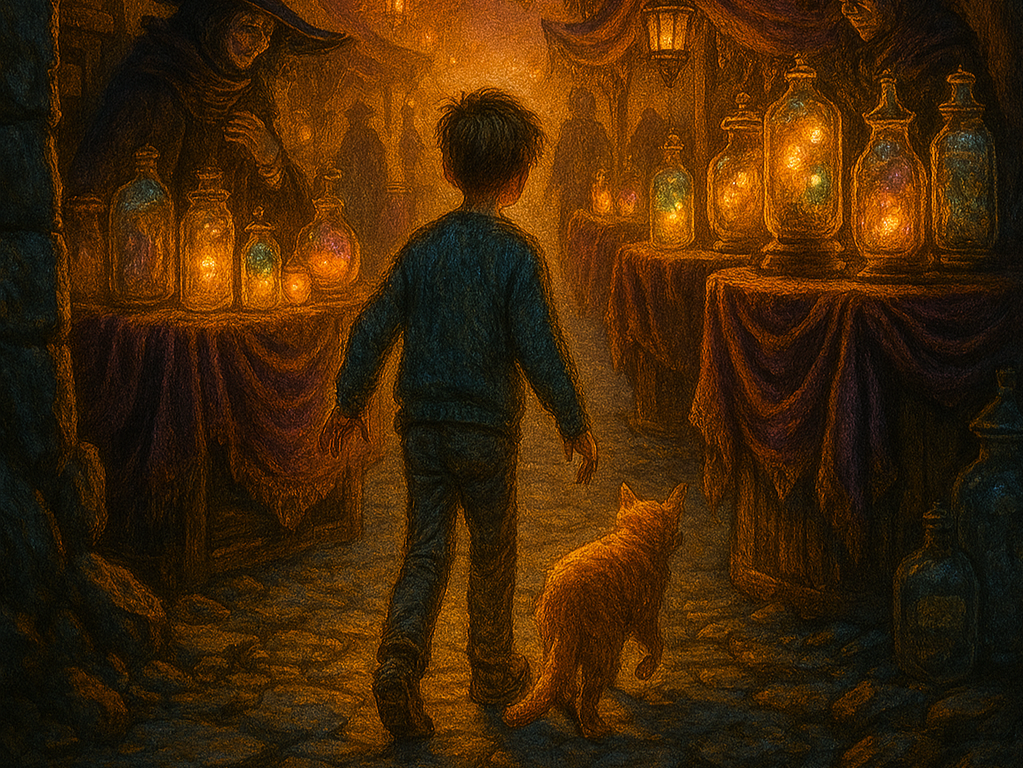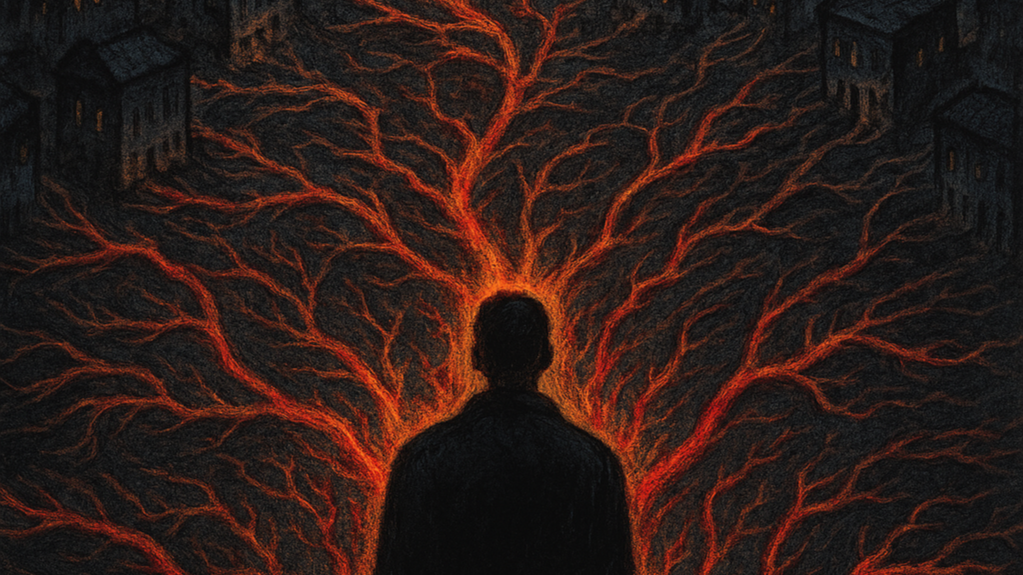The Last Bus Home
The workshop had run long. Jamie could feel it in his shoulders, in the way his spine had settled into the moulded plastic chair. Three hours of careful listening, of nodding at the right moments, of offering feedback that was honest but not cruel. He was good at it now, after six months of Sundays. Good at reading the room, at knowing when someone needed encouragement and when they needed silence.
Maya had read last. A piece about her grandmother's hands, about the way memory lives in gesture. It was good—genuinely good—and Jamie had told her so as they'd filed out into the October dusk. She'd smiled, grateful, and they'd walked together to the station in that companionable quiet that comes after shared vulnerability.
"Thanks for coming back this week," she'd said at the platform fork. "I know it's a trek for you."
"It's all right," Jamie had replied, though it wasn't, not really. The 47 bus came once an hour on Sundays, and missing it meant an extra forty-five minutes standing in the cold or paying for a taxi he couldn't afford. "Your piece was worth it."
They'd said goodbye. Maya had gone left towards the westbound platform; Jamie had gone right, checking his phone as he walked. 6:47. The bus was due at 6:52. He had time, just.
That's when the notification came.
Maya: I'm sorry to bother you but I'm having a panic attack and I'm sitting on a bench near the south entrance if you're still around I don't know what to do
Jamie stopped walking. Read it again. Looked up at the digital display board: 47 to Pembridge — 4 mins.
His thumb hovered over the keyboard. He could see the bench from here if he turned around, a dark shape beneath the station canopy about two hundred metres back. He couldn't see Maya, but he trusted that she was there. She wouldn't lie about something like this.
Four minutes.
He knew what the right thing was. He knew what the good person would do. The good person would turn around, would sit with Maya until the panic passed, would miss the bus and figure out the logistics later. The good person wouldn't calculate the cost of a taxi or the fact that he'd already given three hours of his Sunday to this, that he'd woken up tired and would have to wake up tired again tomorrow for work.
The display ticked down. 3 mins.
Jamie started typing: I'm so sorry, I'm still here, coming back now
He didn't send it.
Instead, he deleted it and wrote: Can you call someone? I'm about to get on my bus
He deleted that too.
The bus rounded the corner into view, its headlights cutting through the gathering dark. Jamie put his phone in his pocket and walked towards the stop. He told himself he'd send something once he was on board, once he'd had a moment to think. He told himself that Maya had other people, that a text wasn't a summons, that he barely knew her anyway—six Sundays of polite conversation and workshopped prose.
The bus sighed to a halt. The doors opened. Jamie stepped on, tapped his card, found a seat by the window on the upper deck. As the bus pulled away, he took out his phone again and looked back towards the station. He couldn't see the bench anymore.
He opened the message thread.
Maya: I'm sorry to bother you but I'm having a panic attack and I'm sitting on a bench near the south entrance if you're still around I don't know what to do
Sent four minutes ago. No follow-up. He imagined her sitting there, watching her phone, waiting for the three dots that would mean someone was coming. He imagined her watching them disappear.
Jamie started typing again.
*
The bus was half-empty, that Sunday evening lull between the day-trippers heading home and the night workers heading out. Jamie sat in his usual spot—back right, window seat—and tried to focus on the mechanics of the message.
Hey, I just saw this. I'm on the bus already but
But what? But I hope you're okay? But I'm sorry I left? But I'm not actually sorry because I made a choice and I'm allowed to make choices about my own capacity?
He deleted it.
Across the aisle, a teenage girl was crying silently, her face turned towards the window. Tears tracked down her cheeks in the reflected streetlight, but she made no sound. Her shoulders didn't shake. Jamie wondered if anyone else had noticed. He wondered if he should say something, offer a tissue. He had a packet in his coat pocket, left over from his own bad week last month.
But what would he say? Are you all right? Obviously she wasn't. Can I help? Probably not. And maybe she wanted to cry privately, maybe the last thing she needed was a stranger's concern.
Jamie looked back at his phone.
I saw your message. I'm sorry I couldn't
Couldn't what? Stay? He could have stayed. He'd chosen not to. There was a difference between couldn't and wouldn't, and Maya would know it.
He tried again: I saw your message. I hope you're feeling better. Let me know if you need anything
But that was worse, somehow. Passive. The kind of thing you say when you don't mean it, when you're hoping the person won't actually take you up on it.
The bus lurched through a corner and Jamie's hand caught the edge of his coat pocket. He felt the sandwich inside, the one he'd made this morning and forgotten to eat at lunch. Cheese and pickle, the bread probably soggy by now. He'd been saving it for the journey home, that small comfort to look forward to. Now it felt accusatory, evidence of his premeditation. He'd planned to get on this bus. He'd packed accordingly.
Another notification buzzed. Jamie's heart jumped, but it was just his mum asking if he wanted to come for dinner on Tuesday. He typed back a thumbs-up without thinking, then immediately regretted it. Too casual. She'd asked a question; she deserved a proper answer. But now she'd seen he was online, so if he followed up with a longer message it would look like he was overthinking it.
Everything felt like evidence of something.
He looked up. The teenage girl had stopped crying. She was staring at her phone now, her face blank. Jamie wondered if someone had messaged her, if someone had said the right thing or the wrong thing or nothing at all. He wondered if she was drafting and deleting, drafting and deleting.
The bus passed a park, swings moving slightly in the wind. Jamie remembered primary school, the way you'd pump your legs to go higher, the specific nausea of going too high and wanting to stop but not knowing how without looking scared. He remembered that feeling of commitment, of being in motion and unable to reverse.
He checked Maya's message again. Still no follow-up. It had been twelve minutes now. Surely if it was really serious, someone would have called 999? Surely she'd have found help? The station wasn't deserted. There were staff, other passengers. She wasn't alone, not really.
But she'd asked for him specifically. Not just anyone. Him.
Jamie tried to remember what they'd talked about over the past six weeks. Books, mostly. The logistics of the workshop. She'd mentioned living alone, working from home—something in admin for a housing association. He'd mentioned his job at the call centre, the way the headset made his ears ache. They'd bonded over bad coffee and the particular hell of open-plan offices. It wasn't deep, but it was something. Enough that she'd thought to text him.
Enough that he should have stayed.
The thought arrived fully formed, and Jamie tried to push it away. He had a right to boundaries. He had a right to his own energy, his own space. The workshop leader had said that once, in the context of feedback—you don't owe anyone your labour, even your emotional labour—and Jamie had written it down because it felt important, feel revolutionary even. He'd underlined it twice.
But now it felt like an excuse.
A man got on at the next stop, late fifties, carrying shopping bags. The lower deck must have been full because he climbed up to the top and stood in the aisle, swaying with the motion of the bus. An older woman near the front immediately stood up and gestured to her seat. "You take it, love. I'm getting off soon anyway."
"You sure?" the man asked.
"Course. Go on."
Jamie watched the exchange, the easy kindness of it. No deliberation, no cost-benefit analysis. Just: here's a thing I can do, so I'll do it.
But maybe the woman lived alone. Maybe she had all the energy in the world to give. Maybe she hadn't spent the last three hours holding space for other people's words, feeling her own vocabulary deplete with each careful response. Maybe she was a better person than Jamie, or maybe she just had more capacity today. There was no way to know.
His phone was still open to the message thread. The cursor blinked in the text box, patient and accusing.
Maya: I'm sorry to bother you but I'm having a panic attack and I'm sitting on a bench near the south entrance if you're still around I don't know what to do
Jamie focused on the phrasing. I'm sorry to bother you. She knew she was asking for something. She knew it was an imposition. And still she'd asked, which meant she'd needed it, which meant—
No. He couldn't follow that logic. It didn't end anywhere good.
He tried a different approach: what would he want if their positions were reversed? If he'd been the one texting from a station bench, panic rising, what would he have needed to hear?
But he'd never do that. He'd never text someone from the workshop, someone he barely knew. He'd call his best friend Sam, or his sister, or he'd sit it out alone. He had a whole protocol for panic attacks, developed over years: find somewhere quiet, focus on breathing, list five things you can see. He didn't need rescuing.
But maybe Maya didn't have a Sam or a sister. Maybe she'd scrolled through her contacts and landed on Jamie because he was there, because he'd just told her that her writing was good, because three hours ago they'd been in the same room and that had to count for something.
The bus stopped at a red light. Through the window, Jamie could see a corner shop, still open, its neon sign flickering: OPEN LATE. A streetlamp above it was doing the same, on-off-on-off, like it couldn't make up its mind.
His phone buzzed again. His heart lurched. But it was just a promotional email. 20% off autumn boots! Jamie deleted it and felt exhausted by the motion, by the constant demand for his attention.
Twenty-six minutes since Maya's message. If she was still in crisis, if she was still alone on that bench, surely she'd have sent a follow-up by now? Surely silence meant she'd found help, or that the panic had passed, or—
Or that she was too deep in it to type. Or that she'd given up on him.
*
The teenage girl got off at the next stop. As she passed Jamie's seat, he saw her face properly for the first time: younger than he'd thought, maybe fifteen, with that particular rawness of adolescent misery. She didn't look at anyone. Just walked down the stairs and off into the night.
Jamie wondered what would happen to her. If she'd get home safely. If anyone would ask if she was all right. If she'd lie and say yes.
The woman who'd given up her seat was gone too. So was the man with the shopping bags. The bus was emptier now, just Jamie and a couple near the front, talking quietly in a language he didn't recognise. The rhythm of it was soothing, the rise and fall of intimate conversation.
Jamie's phone screen had gone dark. He tapped it awake and there it was, still waiting.
Maya: I'm sorry to bother you but I'm having a panic attack and I'm sitting on a bench near the south entrance if you're still around I don't know what to do
He started typing. This time he didn't stop to edit.
I saw your text. I'm sorry I couldn't stay. I hope you're okay. If you want to talk tomorrow, I'll be around.
His finger hovered over the send button. It wasn't perfect. It was barely adequate. But it was honest, and that had to be worth something.
He sent it.
The relief was immediate and nauseating. He'd done something, at least. Not the right thing, maybe, but a thing. He'd acknowledged her, hadn't left her completely hanging. If she was still in crisis, she could call him. He hadn't offered, but she could ask. That was reasonable, wasn't it? That was fair?
The three dots appeared almost instantly. Maya was typing.
Jamie's stomach dropped. She was going to tell him off. She was going to say I needed you and you left or what kind of person sees that message and gets on a bus? or—
The dots disappeared. Reappeared. Disappeared again.
Then:
Just that. A thumbs-up emoji.
Jamie stared at it. Tried to decode it. Was it sincere? Sarcastic? A dismissal? Forgiveness? The thumbs-up was the most ambiguous emoji in existence, capable of meaning anything from genuine thanks to fuck you depending on context and relationship and a hundred other variables.
He typed: Are you okay now?
Then deleted it. If she wanted to tell him, she would. Asking would just reopen the conversation, create more obligation.
He put his phone in his pocket and looked out the window. They were passing through Northfield now, the part of the route he usually slept through. Rows of terraced houses, their windows glowing yellow. In one, he could see a family sitting down to dinner. In another, someone washing up at the sink. Ordinary lives, continuing.
The sandwich in his pocket felt heavier. Jamie took it out, unwrapped the cling film. The bread was soggy, as predicted. The cheese had that slightly sweaty look it got when it was too warm. He took a bite anyway. It tasted like guilt and carbohydrates.
His phone buzzed. He nearly dropped the sandwich getting it out.
But it was just Sam, asking if he wanted to come to pub quiz on Wednesday. Jamie typed back: Yeah, sounds good. Then, because Sam was his best friend and would understand: Had a weird day. Tell you about it later.
Sam sent back a heart emoji. Just that, no questions. It was one of the things Jamie loved about him—he knew when to push and when to wait.
Jamie put his phone away again. Ten more minutes until his stop. He could see the edge of the park near his flat, the one with the tennis courts and the cafe that did good coffee. Nearly home. Nearly safe.
But safe from what? Maya wasn't a threat. Her panic attack wasn't contagious. He'd made a choice, and the choice hadn't hurt him. So why did he feel like he'd escaped something?
*
The bus driver took a corner too fast and Jamie's sandwich slid across the seat. He grabbed it, rewrapped it, put it back in his pocket. Suddenly he wasn't hungry anymore.
He thought about the workshop, about the way they always started with the same question: What's at stake in this story? Not just what happens, but what matters. What the character stands to lose.
What had been at stake for Jamie tonight? Forty-five minutes. Twenty quid for a taxi. A bit of energy he'd been saving for the week ahead. Small things, really. Manageable losses.
But then what had been at stake for Maya? He didn't know. That was the problem. He had no idea how bad it had been, whether his presence would have made a difference or just been an awkward witness to her distress. He had no idea if she'd needed him specifically or just needed anyone. He had no idea if staying would have been kind or would have been its own kind of violence, forcing her to perform recovery for his benefit.
He had no idea, and he'd made a choice anyway.
The couple near the front got off. Now it was just Jamie and the driver, the bus a moving capsule of solitude. He could hear the engine, the squeak of the suspension, the occasional swish of a car passing in the opposite direction. London sounds, so familiar they were almost silence.
Jamie's stop was next. He stood up, made his way carefully down the stairs. The driver didn't acknowledge him—they never did on this route, this time of evening. Just a job, just going through the motions. Jamie wondered if the driver had seen the teenage girl crying earlier. If they'd noticed the woman giving up her seat. If any of it registered, or if you had to stop seeing people to do a job like this.
The bus stopped. The doors sighed open. Jamie stepped off into the October night.
The air was colder than he'd expected. He pulled his coat tighter and started walking. Two streets to home, three if you counted the cut-through by the park. He usually went the short way, but tonight he took the long route, past the primary school and the corner shop and the house with the overgrown garden.
He needed time to think.
Or maybe he needed time to not think. To let the decision settle into something he could live with.
*
Jamie's flat was dark when he got in. He'd left in a hurry that morning, late for the workshop, and hadn't bothered with the curtains. Now the streetlight outside cast orange shadows across the living room, making everything look staged and unfamiliar.
He dropped his keys in the bowl by the door—a habit from his mum, who'd always had a bowl for keys—and stood for a moment in the hallway, listening. The upstairs neighbours were watching television, something with a laugh track. The boiler was clicking its pre-heating ritual. Normal sounds. Comforting sounds.
Jamie took out his phone. No new messages. The thumbs-up from Maya sat there in the thread, ambiguous and final.
He opened a new message to Sam: You know when you make a choice and you're pretty sure it's the wrong one but you do it anyway because the right one costs too much?
Then he deleted it. Too dramatic. Too needy. Sam would just worry, and there was nothing to worry about, not really. Jamie had made a choice. People made choices every day. This one just happened to involve another person's crisis, but that didn't make it special.
He went to the kitchen, filled the kettle, stood watching it come to the boil. The blue light underneath reflected in the window, turning his face ghostly. He looked tired. He was tired. That was allowed.
The kettle clicked off. Jamie made tea—Yorkshire, strong, splash of milk—and took it to the sofa. Sat down in his usual spot, the left cushion that had moulded to his shape. Put his phone on the arm of the sofa, screen up, just in case.
In case of what? In case Maya sent a follow-up? In case she told him she'd got home safely, that the panic had passed, that she understood why he'd left? In case she told him she'd never forgive him?
The phone stayed silent.
Jamie sipped his tea and tried to think about something else. Work tomorrow—he had back-to-back calls in the afternoon, some complaint about a delayed delivery that he'd have to smooth over with sympathetic noises and a discount code. The usual. Then home, then dinner, then sleep. Tuesday would be dinner at his mum's. Wednesday was pub quiz with Sam. The week stretched ahead, familiar and shapeless.
He should feel grateful for the routine. He'd spent years building it, this careful architecture of manageable days. No surprises. No demands he couldn't meet. Just work and friends and hobbies and sleep, all balanced in careful proportion.
But tonight the routine felt like cowardice.
Jamie put his tea down. Picked up his phone again. Scrolled back through the message thread with Maya, looking for clues about who she was, what she might have needed from him.
Maya: Thanks for the feedback today. Really helpful.
Jamie: No worries. Looking forward to the next draft.
Maya: Do you know any good books about grief? Not misery memoirs, just fiction that gets it right?
Jamie: Year of Magical Thinking? Or if you want fiction, maybe The Heart's Invisible Furies.
Maya: Perfect. Thanks x
Grief. She'd asked about grief. Jamie tried to remember if she'd mentioned losing someone, but he couldn't. Maybe it had come up in her writing. Maybe it hadn't come up at all, and the question had been abstract, or for a friend, or just curiosity.
Or maybe she was grieving something current and real, and the panic attack had been part of that, and Jamie had left her alone with it.
He put the phone down. Picked it up again. Typed: Hey, just wanted to check in properly. Hope you're okay. Sorry again for rushing off.
He read it back. It sounded guilty. Which he was, so maybe that was accurate. But did he want her to know that? Did his guilt serve any purpose except to make him feel like he'd tried?
He sent it anyway.
This time the three dots appeared immediately. Jamie watched them, heart racing, as Maya typed and retyped whatever she was going to say. It felt like waiting for a verdict.
Then: I'm fine now. Friend came and picked me up. Thanks for checking x
Jamie read it three times, parsing the tone. I'm fine now. Was that reassurance or dismissal? Friend came and picked me up. So she had other people. She hadn't needed him specifically. Thanks for checking. Polite. Final. The x softened it, but only just.
He wanted to ask more. Which friend? Are you really okay? Do you want to talk about it? But he'd lost the right to ask those questions when he'd got on the bus. You couldn't opt out of someone's crisis and then opt back in when it was convenient.
So instead he typed: Glad to hear it. See you next week x
Casual. Breezy. Like the last hour hadn't happened.
Maya sent back another thumbs-up. Then she went offline.
*
Jamie finished his tea. Made another cup. Sat in the dark, watching the streetlight flicker outside. It was doing that more and more lately, that on-off-on-off rhythm. He kept meaning to report it to the council, but it never seemed urgent enough. And maybe he liked it, in a way. The reminder that things break down slowly, that deterioration has its own pace.
His phone buzzed. For a wild moment he thought it might be Maya again, saying what she'd really meant. But it was just a notification that his screen time was up 25% this week. You spent 6 hours on your phone yesterday. The app suggested he try a digital detox.
Jamie laughed, a short bark of sound in the quiet flat. Six hours. And in those six hours, how many times had someone needed something from him? How many messages had he answered, how many small kindnesses had he performed, how many emotional ledgers had he balanced? And still, the one time someone had asked for something big, he'd said no.
Except he hadn't said no. He just hadn't said yes.
There was a difference, Jamie told himself. There was a difference between active refusal and passive absence. Between saying I can't help you and just... not helping.
But maybe the difference only mattered to him.
He thought about the workshop leader's words again: You don't owe anyone your labour, even your emotional labour. It had felt so liberating at the time, permission to have boundaries, to say no without guilt. But now Jamie wondered if he'd misunderstood. Maybe the point wasn't that you didn't owe anyone anything. Maybe the point was that you had to choose who you owed, and how much, and whether you could afford to pay.
And he'd chosen himself. His own energy, his own evening, his own small comforts. That was allowed. That was healthy. That was self-care.
So why did it feel like selfishness?
Jamie's phone sat silent on the sofa arm. Outside, someone walked past, their footsteps echoing on the pavement. A dog barked in the distance. The boiler clicked off, its cycle complete. Normal night sounds. The sounds of people living parallel lives, all contained in their own small orbits.
He picked up his phone one last time. Scrolled back to Maya's original message.
Maya: I'm sorry to bother you but I'm having a panic attack and I'm sitting on a bench near the south entrance if you're still around I don't know what to do
I don't know what to do.
That was the part that stuck with him. Not the panic attack itself, not the request for help, but that admission of not knowing. The vulnerability of it. Maya had been lost, and she'd reached out, and Jamie had... what? Made a calculation. Weighed the costs. Decided his own lostness mattered more.
Maybe that was fair. Maybe people could only carry their own weight.
But then why did the world ask for more?
*
Jamie didn't sleep well. He kept waking up, checking his phone, finding nothing. At 3am he got up and made toast, eating it standing by the kitchen window, watching the empty street below. A fox trotted past, confident in the darkness. Jamie envied it—that certainty of purpose, that animal simplicity.
At 4am he tried to read, but the words wouldn't settle. At 5am he gave up and had a shower, letting the water run hot until the mirror fogged completely. When he got out, his skin was red and his mind was no clearer.
He made coffee. Sat at the kitchen table with his laptop, thinking he might write something. He'd been working on a story for the workshop, a piece about a man who collects lost gloves from park benches. But now it felt trite, the metaphor too obvious. Of course it was about loneliness. Of course it was about looking for connection in discarded things. What else would it be about?
He closed the laptop. Checked his phone again. Still nothing from Maya.
At 7am he gave up and got ready for work. The usual routine: shower, clothes, breakfast, keys in the bowl by the door. He left twenty minutes early, just to be moving. The streets were quiet, that pre-commute lull when the city belongs to cleaners and bakers and insomniacs. Jamie walked slowly, trying to feel present in his body, trying to shake the sense that he'd left something important behind.
The call centre was bright and artificially warm. Jamie's desk was in the middle of the floor, surrounded by identical desks with identical computers and identical headsets. He logged in, checked the queue, put on his headset. First call came through at 8:32.
"Good morning, you're through to Jamie, how can I help?"
It was an elderly woman, confused about her bill. Jamie walked her through it, line by line, patient and warm. She thanked him profusely, called him "dear," said he was the first person to actually listen. Jamie felt the familiar swell of satisfaction, that small hit of having been useful. It carried him through the next call, and the next, until lunch.
In the break room, his colleague Priya was complaining about her weekend. "My sister's getting married and she wants me to be maid of honour, but honestly, I can't deal with her right now. She's so stressed about everything, it's exhausting."
"Are you going to tell her that?" someone asked.
"God, no. I'll just do it and bitch about it after." Priya laughed. "That's what family's for, right?"
Jamie thought about Maya. About the difference between family and acquaintance, between obligation and choice. With family, you showed up even when it cost you. With acquaintances, you could... what? Opt out? Prioritise yourself? Where was the line?
He checked his phone. Still nothing. Maybe that was answer enough.
*
Tuesday evening, Jamie went to his mum's for dinner. She'd made lasagne, his favourite, and the kitchen smelled like cheese and warmth and childhood. His sister was there too, back from university for reading week. They all sat around the small table, passing salad and garlic bread, talking about nothing important.
"You look tired, love," his mum said. "Everything all right?"
"Yeah, just work. You know how it is."
"Are they still making you do those double shifts?"
"Sometimes. It's fine though. Pays the bills."
His sister, Emma, rolled her eyes. "You should quit. That place is exploiting you."
"Em, not everyone can just quit their job."
"I'm not saying just quit. I'm saying you deserve better."
Jamie felt a flash of irritation. Easy for Emma to say, with her student loan and her parent-subsidised flat-share and her vague plans to "do something in journalism." She'd never had to make the calculation between deserve and afford, between what you wanted and what you could carry.
But then maybe that was unfair. Maybe Emma would learn, when the world asked her to choose between her own needs and someone else's. Maybe everyone learned eventually.
"I'm fine," Jamie said. "Really."
His mum looked at him for a long moment, the way she did when she didn't believe him but was choosing not to push. Then she changed the subject to the neighbours' new conservatory, and the moment passed.
After dinner, Jamie helped with the washing up. His mum washed, he dried, another childhood routine. The rhythm of it was soothing—soap, rinse, dry, stack. Simple tasks with clear outcomes.
"You know you can talk to me, don't you?" his mum said, not looking at him. "If something's bothering you."
"I know."
"I'm serious. Even if you think it's silly, or if you've already decided what to do. Sometimes it helps to say it out loud."
Jamie dried a plate, set it carefully on the stack. "What if you made a choice and you're not sure it was the right one?"
"What kind of choice?"
"Just... someone needed help, and I didn't give it. And now I don't know if that makes me a bad person or just a person."
His mum was quiet for a moment, scrubbing at a stubborn bit of cheese. "Did you have the capacity to help?"
"I don't know. Maybe. It would have cost me something."
"Then that's your answer. If it would have cost you something you couldn't afford, then you made the right choice."
"But what if they couldn't afford the cost of me not helping?"
His mum turned to look at him. "Oh, love. You can't carry everyone. You'll break yourself trying."
"But someone has to carry them."
"Yes. But not always you."
Jamie nodded, but he didn't feel reassured. He dried the rest of the dishes in silence, then made an excuse about an early start tomorrow. His mum hugged him at the door, holding on a beat longer than usual. "Be kind to yourself," she said. "You're doing your best."
Was he though? Jamie walked home through the dark streets, past the houses with their glowing windows, and wondered what "best" even meant. Best for who? Best by what measure?
*
Wednesday was pub quiz with Sam. Jamie almost cancelled—he felt too raw for jokes and trivia—but Sam would have worried, so he went.
The pub was warm and crowded, full of competing teams and the smell of beer and chips. Sam had saved them a corner table, away from the speakers. He grinned when he saw Jamie. "There you are. I was about to send a search party."
"Sorry. Took me ages to find parking."
"You walked here. I saw you walking past the window."
Jamie laughed despite himself. "All right. I'm late because I'm a disaster. Happy?"
"Delighted." Sam pushed a pint across the table. "I got you a Guinness. Figured you'd need it."
"Why?"
"Because you texted me on Sunday saying you'd had a weird day, and then you didn't tell me about it, which means it was either very boring or very not boring. And if it was boring you'd have told me. So." Sam leaned back, expectant. "What happened?"
Jamie took a sip of the Guinness. It was cold and bitter and exactly what he needed. "Someone from the workshop had a panic attack. She texted me asking for help. I was about to get on my bus home, so I just... got on the bus."
Sam's face went through several expressions—surprise, concern, something that might have been judgment. Then he said, "Okay. And?"
"And I feel terrible about it."
"Did she end up okay?"
"Yeah. Her friend picked her up."
"So she had other options."
"I guess."
"And you weren't responsible for her."
"No."
"But you still feel like you should have stayed."
Jamie nodded.
Sam was quiet for a moment, picking at the beer mat. Then he said, "Remember when my dad was in hospital and I couldn't visit because I had that big presentation at work?"
"That's different."
"How?"
"Because he's your dad."
"Exactly. He's my dad, and I still chose work. Because I'd been preparing for months and my job was on the line and my mum was there anyway. And I felt awful about it, but I also knew I'd made the only choice I could make." Sam looked at Jamie. "You're allowed to have limits. You're allowed to say 'not this time.'"
"But what if 'not this time' is always?"
"Is it always?"
Jamie thought about it. Thought about the times he had helped—listening to Sam's work problems, visiting his gran in the care home, volunteering at the food bank last Christmas. Small things, maybe, but they counted. Didn't they?
"I don't know," he said finally. "Maybe I'm just selfish and I've convinced myself I'm not."
"Or maybe you're human and you're doing your best with limited resources." Sam drained his pint. "Look, I can't tell you whether you made the right choice. Only you know what you had to give. But I can tell you that beating yourself up about it isn't helpful to anyone, especially not her."
"How is it not helpful to her?"
"Because if you see her again and you're consumed with guilt, she'll feel it. And then she'll feel responsible for your guilt, which is a whole new burden. Whereas if you just... accept that you made a choice and move on, then you can both move on."
Jamie hadn't thought of it that way. The idea that his guilt might be its own kind of imposition.
The quiz started. Sam was brilliant at pop culture and terrible at geography. Jamie was the opposite. Between them they scraped third place and won a bottle of house wine that neither of them wanted. They split it anyway, toasting to mediocrity.
Walking home afterwards, slightly drunk and definitely tired, Jamie felt lighter. Not absolved, exactly, but less trapped. Sam was right—beating himself up didn't help anyone. And maybe the question wasn't whether he'd made the right choice, but whether he could live with the choice he'd made.
Could he?
He'd find out on Sunday.
*
Sunday came too fast and too slow. Jamie woke early, anxious, and spent too long deciding what to wear, as if his outfit could communicate something his words couldn't. In the end he wore what he always wore—jeans, jumper, the jacket with the torn pocket he kept meaning to mend.
The workshop was in the same community centre it was always in, same peeling paint and instant coffee and circle of plastic chairs. Jamie arrived ten minutes early. So did Maya.
She was sitting in her usual spot, reading something on her phone. She looked up when Jamie came in, and for a horrible moment neither of them said anything. Then Maya smiled—a small, slightly uncertain smile—and said, "Hi."
"Hi," Jamie said back. He sat down, leaving one chair between them, the way he always did. "How are you?"
"Yeah, good. You?"
"Yeah. Good."
The conversation died. Jamie scrambled for something to say, some way to acknowledge what had happened without making it weird. But before he could find the words, Maya said, "Thanks for the message the other day. Sorry if I worried you."
"No, I'm sorry I didn't—I mean, I hope you're—" Jamie stopped. Started again. "I'm glad your friend could pick you up."
"Yeah. She's good in a crisis." Maya's smile turned wry. "Unlike me."
"You were having a crisis. That's different from being in one."
"I suppose." She fiddled with her phone. "Anyway. I didn't mean to put you in an awkward position. I know we're not, like, close or anything. I just panicked and you were... there."
"It's okay," Jamie said, and was surprised to find he meant it. "Really."
Maya looked at him properly then, searching his face for something. Whatever she found must have been enough, because she nodded and said, "Okay. Good."
The workshop leader arrived. Other people filtered in. The session started, and they fell into the familiar rhythm of feedback and discussion. Maya read a new piece, a continuation of the one about her grandmother's hands. It was even better than the first draft, the emotion sharper, more controlled. Jamie told her so, and meant it.
Afterwards, they walked to the station together again. Not because they'd planned to, but because that's what they always did. This time, when they reached the platform fork, Maya said, "Hey. If you ever need someone to talk to, or whatever. You've got my number."
Jamie blinked. "Thanks. Same."
"I mean it. I know I'm a mess sometimes, but I'm a good listener."
"You're not a mess."
"I had a panic attack on a station bench and texted someone I barely know. I'm a bit of a mess." She said it lightly, but Jamie heard the edge underneath. The same uncertainty he'd been carrying all week.
"We're all a bit of a mess," he said. "That's allowed."
Maya smiled properly this time, no hesitation. "Yeah. It is."
They said goodbye. Jamie checked the board—the 47 was due in six minutes—and went to wait. As the bus pulled in, he looked back towards the south entrance, where the bench was. It was empty now, just another piece of street furniture. Nothing special. Nothing marked.
He got on the bus. Found his usual seat. Put his phone in his pocket without checking it. As they pulled away, he watched the station recede through the window, the lights blurring into orange streaks. Next week he'd be back. Next week there'd be another workshop, another walk to the station, another moment of choice or no choice.
That was the thing about Sundays. They kept coming round.
And maybe that was enough. Maybe the right choice wasn't always the heroic one, or even the kind one. Maybe sometimes the right choice was just the one you could live with, the one that let you get on the bus and go home and wake up the next day and try again.
Maybe that was all anyone could do.
Jamie leaned his head against the window and closed his eyes. The bus rocked him gently as it turned corners, heading north through the darkening city. Towards home. Towards rest. Towards another week of small choices and careful boundaries and the endless negotiation between what you owe and what you can carry.
Outside, a streetlamp flickered—on, off, on, off—unable to make up its mind.
Jamie understood the feeling.

